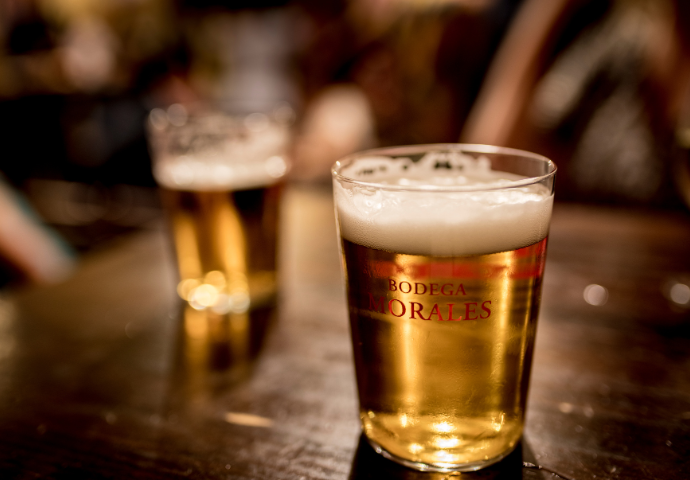Only one in 10 drink spiking incidents are reported to police, according to research published today by Drinkaware and Anglia Ruskin University (ARU).
Of the 90% who did not report the drink spiking to the police, approximately half said they “didn’t see the point”. The research found that 2.2% of respondents reported having their drinks spiked in the previous 12 months, which is equivalent to around 1.2 million adults every year in the UK.
The report analysed data from the Drinkaware Monitor, a UK-wide representative survey looking at drinking behaviours and attitudes, carried out by YouGov. This collected 6,318 responses in 2022 and 10,473 responses in 2023, and venues in Cambridgeshire were also surveyed.
The research found:
- 90% of people don’t contact the police after being spiked and around half of those said it’s because they ‘don’t see the point.’
- 2.2% of UK adults reported having had their drinks spiked in the 12 months leading up to the survey, which equates to around 1.2 million UK adults.
- 11% of UK adults reported being spiked at some point in their lives – 13% of females think they have previously been a victim of drink spiking and 9% of males.
- LGBTQ+ adults are disproportionately affected. Gender and sexual minorities are significantly more likely to report having ever been a victim of drink spiking (18% vs. 11%; 2022 Drinkaware Monitor survey) compared to cis-heterosexual individuals.
- In 2023, more incidents of drink spiking occurred in bars (41%) and clubs (28%) than anywhere else. However, 9% reported being a victim in a private home.
- 14% of respondents who thought their drink had been spiked reported that the incident resulted in physical or mental health issues.
- In addition to the spiking of drinks, 0.7% of respondents said they had been needled (the act of injecting someone with a substance, such as drugs or pharmaceutical compounds, without the person’s knowledge) in the previous year and 1.4% reported being needled in their lifetime.
- Out of the 28 Cambridgeshire bars and clubs that took part in the survey, CCTV was the most common measure to prevent drink spiking (68%) followed by schemes such as ‘ask for Angela’ (64%) and staff training (64%). However, some venues admitted they didn’t report drink spiking incidents to the police.
Karen Tyrell, CEO of the charity Drinkaware said: “Drink spiking is a serious crime that can happen to anyone at any time. With our survey indicating more than a million people could be having their drinks spiked every year, it is important that they can feel confident reporting it to the police.
“That requires collective responsibility between the police, businesses, local authorities, charities and wider society, so that everyone knows what to do and reports of spiking are taken seriously.
“If you are worried you have been spiked, it’s really important that you report it to the police and get appropriate medical care straight away.”
Dr Agatha Grela, Senior Lecturer in Forensic Chemistry at Anglia Ruskin University and Co-Investigator of this project, said: “Contrary to popular belief, drink spiking victims are not just young women on a night out. The data shows that drink spiking can happen to anyone, anywhere, regardless of their gender, ethnicity, sexuality or age. There is a lot of stigma around falling victim to drink spiking – it is never your fault; and we need to focus on shifting the responsibility to the perpetrator.”
Dr Lata Gautam, Associate Professor in Forensic Science at Anglia Ruskin University and Principal Investigator of the project, said: “By studying national-level Drinkaware Monitor data on drink spiking incidents, conducting a survey of venues to explore their current initiatives, and analysing drinks and urine samples—in collaboration with Cambridgeshire Constabulary— we have gained a unique insight into the scale of the issue in the UK.
“It is clear that an integrated and multi-faceted approach is needed, including public awareness campaigns, highlighting what to look out for and the importance of reporting cases to the police, as well as greater education for venues such as pubs, bars and clubs, to help ensure that everyone’s night out is as safe as possible.”
The report can be downloaded from here: https://www.drinkaware.co.uk/research/research-and-evaluation-reports/drink-spiking-report/
Image: Dorte Fjalland from Pexels



